
Cyber Security and Information Assurance at SEAS
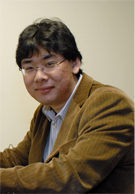 Professor Nan Zhang: Professor Zhang's research focuses on databases and data security/privacy. Current projects include: the analytics of deep web repositories, the protection of sensitive information for web data publishing -- e.g., web databases and enterprise search engines, and the protection of location privacy in mobile computing. Read more
Professor Nan Zhang: Professor Zhang's research focuses on databases and data security/privacy. Current projects include: the analytics of deep web repositories, the protection of sensitive information for web data publishing -- e.g., web databases and enterprise search engines, and the protection of location privacy in mobile computing. Read more
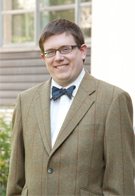 Professor Michael Clarkson: The goal of my research is to make it possible to build secure computer systems. I seek to identify principles and methods for defining security and for building systems that offer security assurance. I employ mathematical models, programming language theory, and logics. I build real systems and analyze their security. I'm specifically interested in electronic voting, security policies, information flow, and cryptography. Read more
Professor Michael Clarkson: The goal of my research is to make it possible to build secure computer systems. I seek to identify principles and methods for defining security and for building systems that offer security assurance. I employ mathematical models, programming language theory, and logics. I build real systems and analyze their security. I'm specifically interested in electronic voting, security policies, information flow, and cryptography. Read more
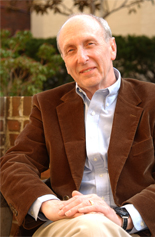 The Cyber Security Policy and Research Institute (CSPRI): CSPRI is a center for GW and the Washington area to promote technical research and policy analysis of problems that have a significant computer security and information assurance component. CSPRI's mission is to encourage, promote, facilitate, and execute interdisciplinary research in these areas, including the exploration of the norms, governance issues, and operating systems of cyberspace. Professor Lance Hoffman is the director of CSPRI. Learn more about Professor Hoffman.
The Cyber Security Policy and Research Institute (CSPRI): CSPRI is a center for GW and the Washington area to promote technical research and policy analysis of problems that have a significant computer security and information assurance component. CSPRI's mission is to encourage, promote, facilitate, and execute interdisciplinary research in these areas, including the exploration of the norms, governance issues, and operating systems of cyberspace. Professor Lance Hoffman is the director of CSPRI. Learn more about Professor Hoffman.
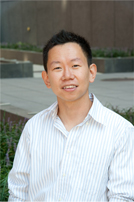 Professor Hoeteck Wee: As the Internet emerges as the platform for computation, we have become increasingly reliant on cryptography to provide privacy and security in many of our day-to-day activities. We rely on cryptographic protocols to protect our credit card numbers from hackers in electronic transactions and our personal information from unauthorized access on online social networks. However, the design of many cryptosystems does not adequately account for new computational and cryptographic attacks made possible by advances in quantum computing and complex protocol interactions on the Internet. The focus of Professor Wee's research lies in the design and analysis of new cryptographic protocols that address these new attacks. Learn more about Professor Wee.
Professor Hoeteck Wee: As the Internet emerges as the platform for computation, we have become increasingly reliant on cryptography to provide privacy and security in many of our day-to-day activities. We rely on cryptographic protocols to protect our credit card numbers from hackers in electronic transactions and our personal information from unauthorized access on online social networks. However, the design of many cryptosystems does not adequately account for new computational and cryptographic attacks made possible by advances in quantum computing and complex protocol interactions on the Internet. The focus of Professor Wee's research lies in the design and analysis of new cryptographic protocols that address these new attacks. Learn more about Professor Wee.
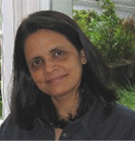 Professor Poorvi Vora: We have been at the forefront of research in the field of independently-verifiable voting systems. These modern cryptographic voting systems provide a digital audit trail for the election, which can be checked by anyone. In particular, voters and observers can independently verify the outcome of a secret-ballot election, even if election officials and voting machines do not perform their functions correctly. Research prototypes developed by us and collaborators have been used by the City of Takoma Park to hold the world's first ever independently-verifiable secret-ballot election for public office. Learn more about Professor Vora.
Professor Poorvi Vora: We have been at the forefront of research in the field of independently-verifiable voting systems. These modern cryptographic voting systems provide a digital audit trail for the election, which can be checked by anyone. In particular, voters and observers can independently verify the outcome of a secret-ballot election, even if election officials and voting machines do not perform their functions correctly. Research prototypes developed by us and collaborators have been used by the City of Takoma Park to hold the world's first ever independently-verifiable secret-ballot election for public office. Learn more about Professor Vora.